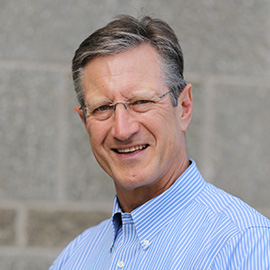Leadership of the Future

The last section of The Shift from Me to Team is about the attributes great leaders of the future will need to possess. The study of the historical progression of how business is most effectively run and the actions of the leaders that make that possible suggest what the future most likely will look like. Once again, we are open to your thoughts. Thank you for your interest in creating thriving lives for all team members doing their best.
#leadership #team #PeakPerformance #CoreIdentity #teamdevelopment #ShiftFromMeToTeam #DynamicStrategicPlanning
A Seismic Change
Before the COVID-19 pandemic, it was a common belief that you could not trust team members to work from home. The significant investment in offices and the supporting systems was considered a requirement—you need to keep an eye on employees to make sure they are productive. While we are still learning about remote work, we are finding we can trust people, for the most part. And we are finding that some organizations are more productive with team members working remotely. Team members had long been requesting more freedom to work from home, especially with the advent of families with two working parents. Why could we not see this before the pandemic?
The COVID-19 pandemic initiated a seismic shift to remote work. Like most liberating transformations, there will be future adjustments, but there will be no going back to the old “the office is where the work gets done” mindset.
Introduction
The responsibility of the leaders in the future will be the same as it is today: to close the gap between where individuals are performing and Peak Performance for their jobs. When team members are thriving, the organization is thriving. This is how an organization successfully thrives today and will thrive tomorrow. The evolution of human nature has taken thousands of years, and it’s not going to change significantly in our lifetimes.
Today, team members expect to be cared for and respected for who they are more than at any time in our history. This is a valued fundamental principle that has always been present, but now there is greater awareness of it. How tomorrow’s leaders motivate, inspire, and emotionally engage team members will require changes from the past methods of traditional organizations. The challenge will be respecting and trusting a workforce that has not earned respect and trust the old-fashioned way.
New workforces will increasingly demand to be cared for individually and appreciated for the contribution they can make. Team members will seek greater respect for their earnest commitment to the organization. How can leaders transition from a me-centered mindset that says team members have to earn the right like the leaders did to trusting a team-centered mindset that unleashes the untapped energy resident in the team members?
Our work at FS/A has revealed that there is greatness resident in human beings to do the right thing for the group’s greater good. Human nature seeks safety and security. We subconsciously know the larger the aligned community the safer and more secure we are. In the workplace, team members are asking to be respected for doing the best they can with what they know. And if there is a gap, leadership must provide support to close it.
When the organization understands its Core Identity—its Vision, Purpose, and Guiding Principles—it possesses a framework for decision making. As a challenge or opportunity arises, a group of three or four team members, providing diverse perspectives, can come together to determine the best course of action. We find this to be true regardless of their rank in the organization’s hierarchy. We have found that a small group of aligned team members will set more aggressive goals, more stringent penalties, and tighter timelines than management. We possess an intrinsic desire to be exceptional; none of us seeks to see how average we can be.
For today’s job seekers, while pay is still an important factor, other metrics have increasing weight for job satisfaction. Joining an organization with values compatible with one’s own set of values in service of a compelling, significant, and gratifying purpose sets the course for sustainable success for both parties. Newer generations are holding out to find work they feel good about doing; they have a desire to be intrinsically energized, and they are not wrong to think this way.
Gallup’s research on employee happiness has revealed a common desire:
To do deeply meaningful work with people we care about.
Human nature is immensely complicated, but the simple principle of being cared for and respected is surfacing as a prerequisite today. Team members expect to be respected to make the best decision they can and be cared for to help close their Peak Performance gaps.
An expanded definition of respect is evident in the priority many recent college graduates give to environmental sustainability as they assess prospective employers. And we have found that organizations that strongly value respect extend it to the environment and the resources they use—they do not seek shortcuts.
The Internet provides a forum for increasing awareness of why an organization exists and how its leaders conduct themselves. While the bad actors gain much attention, exceptional leaders and organizations are being recognized too. Newer members of the workforce have access to more insight into what an organization is striving to become. A shift from me to team is more critical now than ever for attracting and retaining “A” players who model their Peak Performance culture.
The Team Member of the Future: Expectations
The desire to make a difference, have a positive impact, and do something intrinsically motivating drives young people in their work today more than ever before. They want more than just a job—they want meaning in their life; they want a vocation.
This is a shift from our grandparents’ generation when most people felt grateful to have a job. They did what was asked of them because they did not want to risk their livelihood. Their focus was on getting food on the table for the family and a roof over their heads. They did what was asked of them, with little questioning of why.
That is no longer the case for many, and once exposed to a more meaningful culture, it is not easy to go back.






